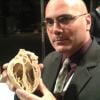For the past few years, the focus of the annual Transcatheter Cardiovascular Therapeutics (TCT) meetings has been on structural heart advances, and the traditional focus on percutaneous coronary intervention (PCI) appeared to take a back seat to make way for the flood of data and new transcatheter valve technologies. While valves are still at the forefront, this year the focus again returned to workhorse PCI stents due to new stents in development and advances in bioresorbable technologies.
Watch the video Editor's Choice of the Most Innovative New Technologies at TCT 2015
The Boston Scientific Synergy stent gained U.S. Food and Drug Administration (FDA) clearance the week before TCT, becoming the first metallic drug-eluting stent (DES) that uses a bioresorbable drug carrier polymer. The abluminal polymer coating completely dissolves within three months, eliminating long-term issues related to permanent polymers, which can cause vessel irritation leading to in-stent restenosis and late-stent thrombosis. The Synergy’s approval was widely discussed as a key advancement in DES technology.
The key late-breaker at TCT was the ABSORB III trial, which is the pivotal FDA study for the Abbott Absorb completely bioresorbable DES. The data show the Absorb had outcomes statistically equal to the Abbott Xience V stent, which to date has the best clinical outcomes data for any DES.
“There were no statistical differences between the devices for target lesion failure or any of its components,” said Dean Kereiakes, M.D., medical director of The Christ Hospital Heart and Vascular Center, and a lead investigator for ABSORB III. He said the trial was designed to show non-inferiority to Xience at one year, but the stent itself is designed to improve long-term outcomes to avoid the 2-3 percent per year of stent-related issues (strut fracture, in-stent restenosis, late-stent thrombosis). “The real test is in the long run if the Absorb bioresorbable scaffold improves late outcomes when it’s gone compared to a metal platform,” he explained.
Watch video interview with Kereiakes regarding the ABSORB III trial and Synergy stents
Additional positive data was presented on the bioresorbable stents from the late-breaking ABSORB China, ABSORB II and BIOSOLVE II trials.
Advances in transcatheter valves also were among the major advances at TCT. Continued positive clinical data from both the Medtronic CoreValve and Edwards Lifesciences’ Sapien valves were presented, including information on the new FDA valve-in-valve indication, and data on improved versions of both valves. Numerous sessions focused on new technologies in development or entering trials for transcatheter aortic valve replacement (TAVR), transcatheter mitral valve replacement (TMVR) and tricuspid valve replacement (TTVR). Sessions on mitral and tricuspid valves were packed to capacity again this year, as both of these technologies are seen as key paradigm shifts in the standard of care. With the overwhelming success of TAVR, many TCT experts predict transcatheter valve technologies will largely replace open-heart surgical valves and repairs in the coming years.
Watch video on these and other trends at TCT 2015 with MDBuyLine's Tom Watson
Here are links to additional video interviews conducted at TCT 2015:
Drug-Filled Stents as an Alternative to Polymer Drug Carriers at TCT 2015
Lithoplasty as an Alternative to Treat Calcified Lesions at TCT 2015
Eye-tracking For Dose Reduction in the Cath Lab — TCT 2015
New Approaches to Denervation Therapy at TCT 2015
Update on U.S. Transradial Access Adoption With Sunil Rao at TCT 2015
Advances in Interventional Heart Failure Hemodynamic Support — TCT 2015



 November 14, 2025
November 14, 2025 









